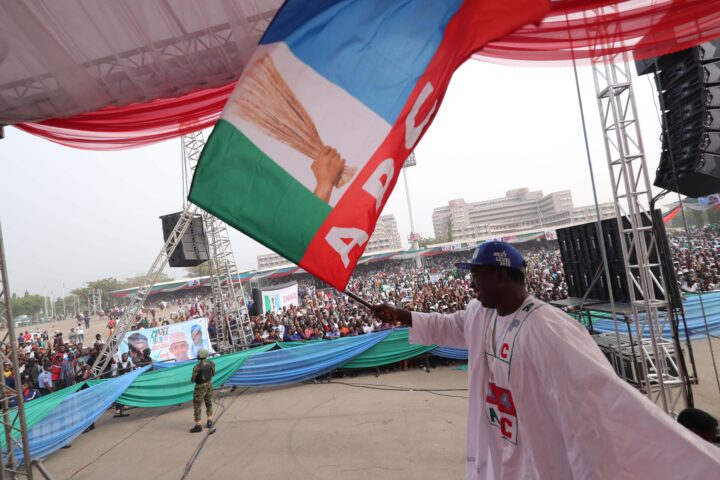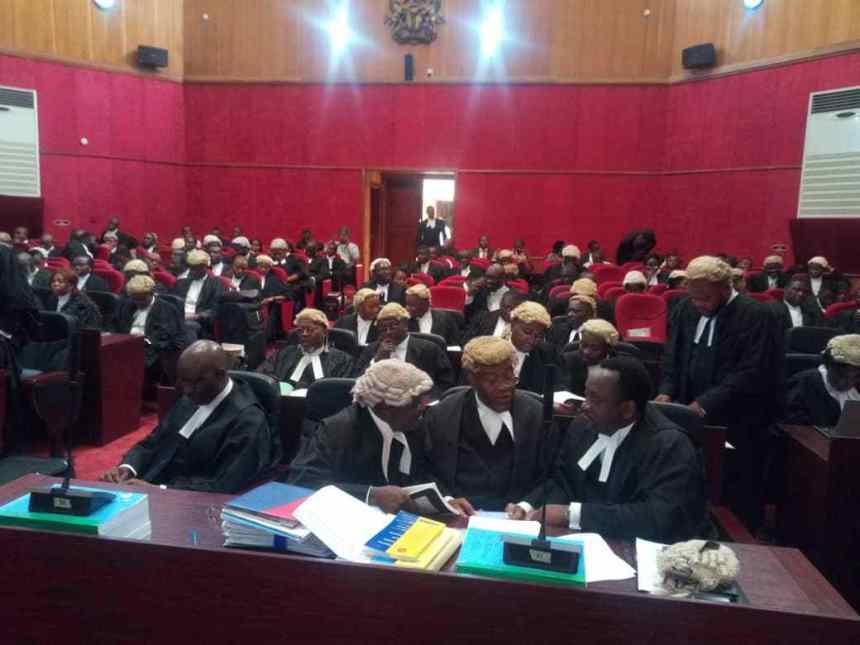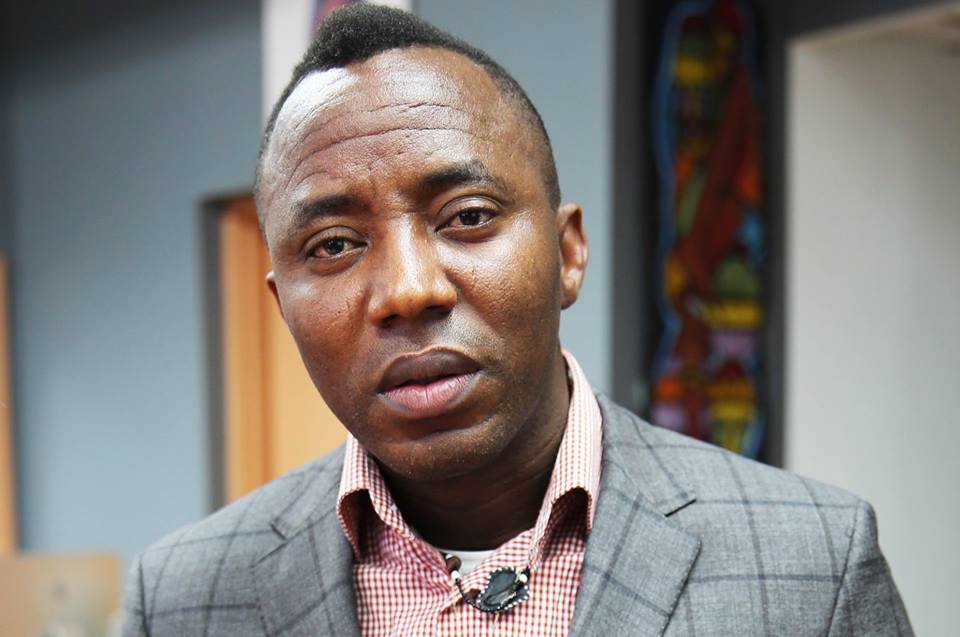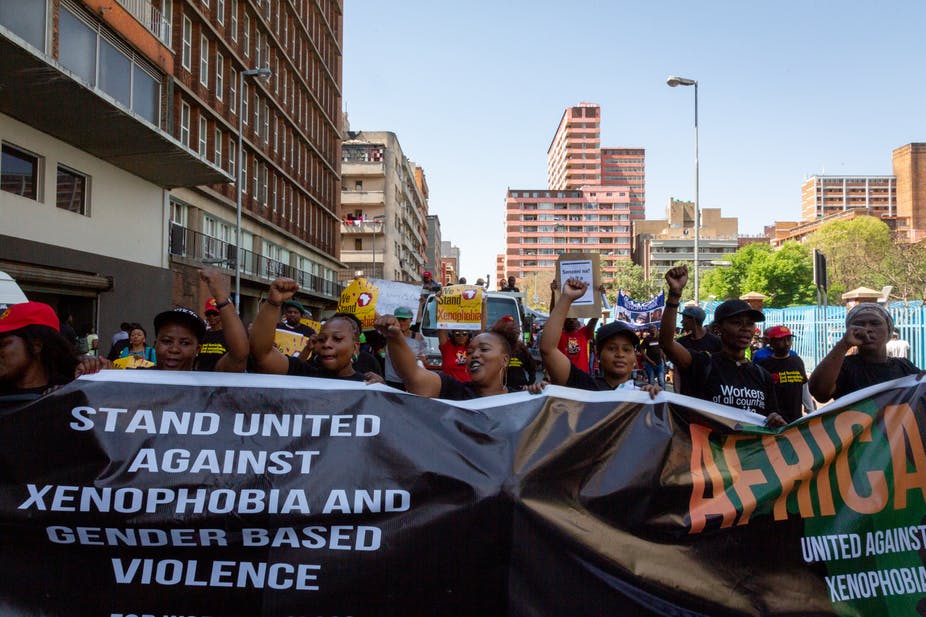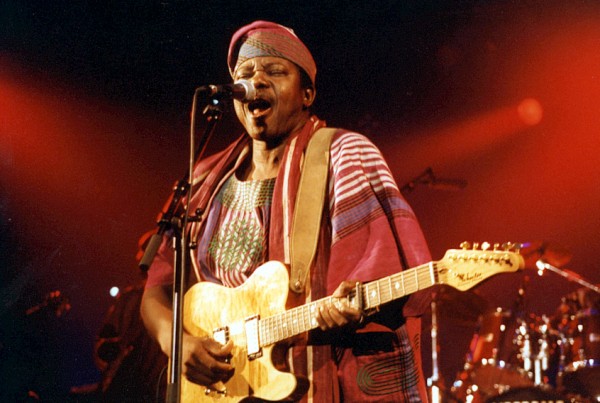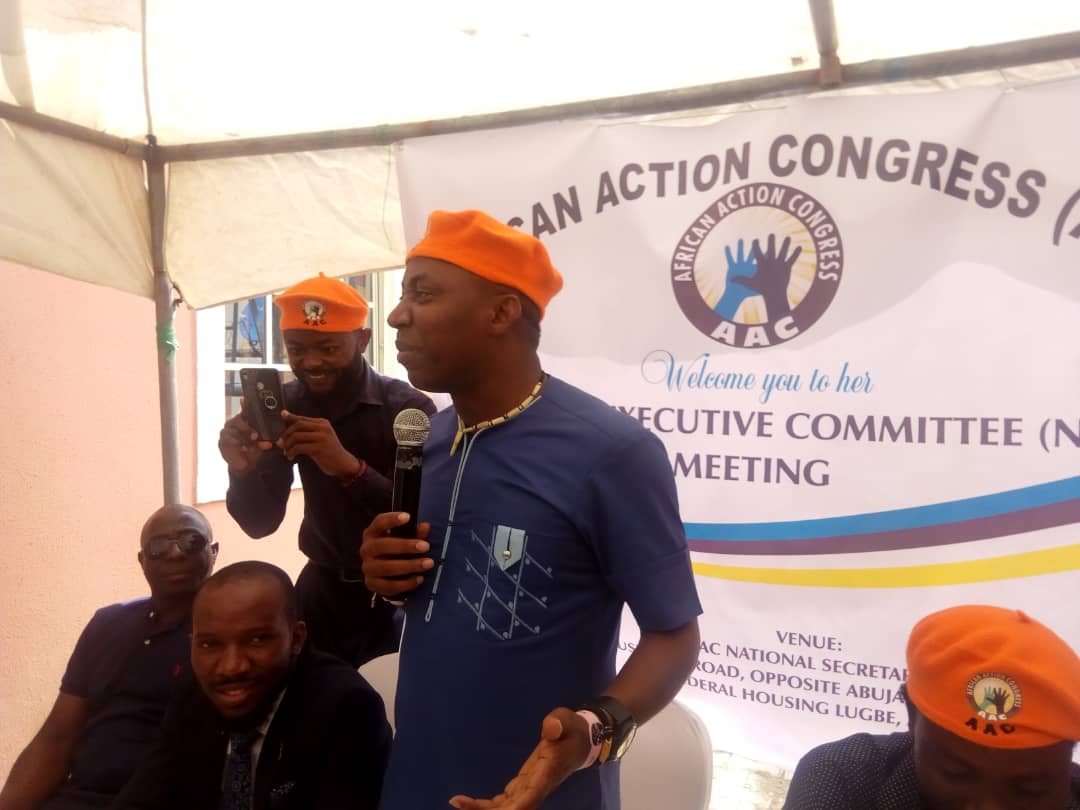BY SALIHU MOH. LUKMAN
On Friday, September 13, 2019, while receiving progressive governors on a solidarity visit to congratulate him following the presidential election tribunal ruling affirming the victory of the APC in the February 23, 2019 elections, President Muhammadu Buhari remarked “what I will say to the chairman of the party and governors in return for your congratulating me is to make sure you really institutionalise the party so that when we leave, the party will continue to lead.’’
Although the president’s message is very clear, it risks being taken for granted and in the process simply become noted and no one, especially the party leadership represented by the national chairman, comrade Adams Oshiomhole and the governors who the president directed his request to, will take any action or steps to ensure that the vision of institutionalising the party is achieved.
If that happens, the president’s kind request to comrade Oshiomhole and the Progressive Governors will be consigned to history, which may only be a subject of interpretations by post 2023 political historians.
Advertisement
The need to institutionalise the APC as a democratic political organisation needs no debate. It goes beyond any claim by any of the power blocs within the party. It is also not about what is intended but simply about what is being done specifically to institutionalise the party. What is very clear is that President Buhari is not in any doubt that the APC is a work in progress and it will require the support and cooperation of all leaders in the party to achieve the task of institutionalising the APC as the envisioned democratic organisation capable of providing the needed leadership to meet all national expectations.
Unlike most of our leaders in the APC who on account of relative advantages of holding offices as elected or appointed officials, the president’s institutionalisation remarks is a clear recognition of the challenges facing the party. Instead of denying the existence of the challenges and proceed to issue directives and browbeat everyone into taking actions in any given direction, the President appealed to those whose responsibility it is to initiate action towards institutionalising the APC.
Perhaps, it needs to be emphatically stated, if anyone is looking for proof about the democratic temperament of President Buhari, this is one evidence. Imagine former President Obasanjo addressing PDP national chairman and its governors. The term institutionalisation will only feature with reference to the directives he will be giving. And implementation of such directives has to meet the whimsical expectations of former President Obasanjo. Anything short of that could mean the removal of the national chairman of the party or stage-managed impeachment of any of the ‘erring’ governors in whatever way possible.
Advertisement
With such orientation, for the 16 years PDP was in power (1999 – 2015), the question of institutionalising the party as a democratic organisation was hardly the consideration of any of the presidents it produced. Unfortunately, given such reality, almost all institutions, which should have facilitated the process of national expansion of democratic spaces became corrosively against democratic tenets. Our political parties, INEC, institutions of governance to non-governmental organisations were all negatively affected. Against such realities, politics was reduced to crude show of power with hardly any respect for conventional democratic principles. Public wealth and resources become personal assets of so-called public officials both elected and appointed.
How can institutionalising the APC address all these? In the first place, what does institutionalisation mean? The easiest approach is to limit our understanding of the term institutionalisation to the presence of physical structures such as a building. But what does such building represent? What are the activities being carried out and how is it carried out? Who own the structure or building anyway?
Without going into academic literatures, beyond physical structures, institutionalisation is simply about regulating behaviour and conduct through compliance or enforcement of rules. It is also about putting in place structures and processes that permit changes or amendments to rules that regulate behaviour and conduct. Given the roles of political parties in producing leaders at all levels based on the statutory functions of producing candidates for elections into various leadership positions, the way and manner candidates emerge is critical to the determination of behaviour and conduct of party functionaries – members and leaders.
Some of the questions that requires clarity include, are rules of the party as provided in their constitution respected by leaders during party primaries? How involved are members of the party? Are there even clearly defined members? Or put different, is there credible membership register? Who keep the membership register?
Advertisement
Our political reality since 1999 is that rules governing behaviour and conduct of members and leaders of political parties are weak. Provisions of party constitution especially with respect to accountable leadership is flagrantly being violated. Meetings hardly take place. Records of membership are at best manipulated by party leaders. As a result, intra-party leadership disputes get messier and mostly resolved based on crude applications of political strengths. These issues are at the heart of all the leadership conflict across all our political parties.
Without belabouring the matter, PDP has wasted more than 16 years of the nation’s democratic life with hardly any serious attempt at addressing these issues. Instead, these problems become the attributes of the PDP and being the ruling party between 1999 – 2015, these attributes become the dominant political culture across all our parties.
While negotiating the merger that produced the APC in 2013, refreshing political initiatives by APC leadership were introduced. One of such initiative was the APC membership data centre project, which was designed to be computerised with substantial initial investment that include office accommodation, personnel, hardware and software located at No. 10 Bola Ajibola Street, off Allen Avenue, Ikeja, Lagos. This initiative by the APC leadership under chief Bisi Akande, presented the APC as a radical departure from the corrosive PDP political culture, which made nonsense of party membership. The national belief in 2013, following the emergence of APC was that the new party will give priority to party membership, which perhaps most have accounted for the mass turnout of Nigerians to register as members of the young APC early in 2014.
The question is, what is the APC scorecard since 2015? How successful is it in producing the envisioned political culture that is different from the corrosive PDP culture? The reality is that the APC regressed more in the direction of the old PDP whereby leaders determine membership and processes of candidates’ emergence become more driven by problems of imposition, vote-buying, etc. This is further worsened by the absence of credible membership register, which raises question as to what has happened to the APC membership data centre project?
Advertisement
A major challenge is whether APC national chairman, comrade Oshiomhole and the progressive governors will immediately link the request of President Buhari to take steps to institutionalise the APC to these issues. Both Comrade Oshiomhole and our progressive governors are no doubt clear about most of these issues. The big challenge is that at the moment, tempers are quite high, which has pushed many of our leaders outside the scope of rational conduct. Unless some moderations are applied, all debates within the party will only be about show of power, which may only produce more animosity at the expense of focusing on the key task of institutionalising the APC as envisioned by President Buhari.
Perhaps, the important question to ask at this stage is, who should facilitate the process of ensuring that our APC leaders are moderated? This is certainly the responsibility of the APC national working committee (NWC) led by comrade Oshiomhole. This is not to suggest that the prerogative of such initiatives exclude the progressive governors and other party leaders. Rather, it is simply to say that the role of the NWC led by Comrade Oshiomhole is an operational determinant of whether other category of leaders, including the progressive governors, could prioritise the task of institution building in the APC. The danger is that so long as tempers are high, the only major pre-occupation of leaders of APC will be who control structures of leadership emergence?
Advertisement
Based on the reality on ground, strong appeals must be made to comrade Oshiomhole largely because as it is, he is clearly also driven by lots of anger, some of which would definitely be legitimate. But leaders are only leaders if they are able to control their anger and drive initiatives outside what could appear to be convenient to them. Having been a union leader governed by democratic principles for the better part of his life, these are very familiar issues to the APC national chairman. His sterling contributions to task of institution building could best be highlighted with reference to how, for instance, he was able to lead the emergence of the National Union of Textiles, Garment and Tailoring Workers Union (NUTGTWN) from nothing between the mid 1980s to late 1990s. His other incontestable contribution to institution building was how he was able to lead the rebuilding of the Nigeria Labour Congress (NLC) from the vestiges of control by military governments.
Among all our political leaders, certainly comrade Oshiomhole is one person who based on personal leadership experiences also know what it means to translate President Buhari’s request for the APC to be institutionalised into concrete results. He is also one person with the current statutory responsibility of giving President Buhari’s request active political life. To be able to do that however he needs to free himself from the deep-seated anger he currently holds against many of his colleagues in the APC leadership. Inability to free himself from all those angers against fellow APC leaders would continue to block initiatives towards building the APC as a democratic institution. For instance, how can we talk of building the APC as a democratic institution when meetings are not taking place? What is the purpose of leaders when they can not meet when they have problem with each other?
Advertisement
Above all, how can we get our APC leaders to return APC on a democratic path where members of the party will be at the centre of processes of candidates’ emergence. Since 2014, APC leaders have made the principled choice of adopting the method of direct primaries. Unfortunately, problems associated with the state of the APC’s membership data centre has slowed progress towards applying the direct methods of party primary in producing candidates. At the root of initiatives to institutionalise the APC as a democratic political party is the question of establishing a credible membership register. Part of the appeal that should be made to the APC NWC led by comrade Oshiomhole is for them to make the APC membership data centre their legacy project such that there should be no debate about methods of party primaries in APC by 2023. With a credible membership record, which can be verified by everyone, all candidates of the APC for 2023 election should emerge from direct primary methods.
Combined by commitment to ensure that meetings of party organs are taking place as provided by the constitution of the party, a very solid foundation would have been laid to build the APC as a strong democratic political institution. All the time our APC leaders spend fighting themselves, it simply means working against the vision of President Buhari to build the APC as a democratic political institution capable of producing leaders that can lead Nigerians to tackle all our national challenges. Certainly, this can’t be the response of Comrade Oshiomhole, our Progressive Governors and all APC leaders.
Advertisement
The first test of their commitment to support President Buhari to achieve his vision of institutionalising the APC to continue to provide democratic leadership to Nigerians is how they are able to manage and control their angers. Time is of essence!
Lukman is the director-general of Progressives Governors Forum. He could be reached via [email protected]
Views expressed by contributors are strictly personal and not of TheCable.
Add a comment
